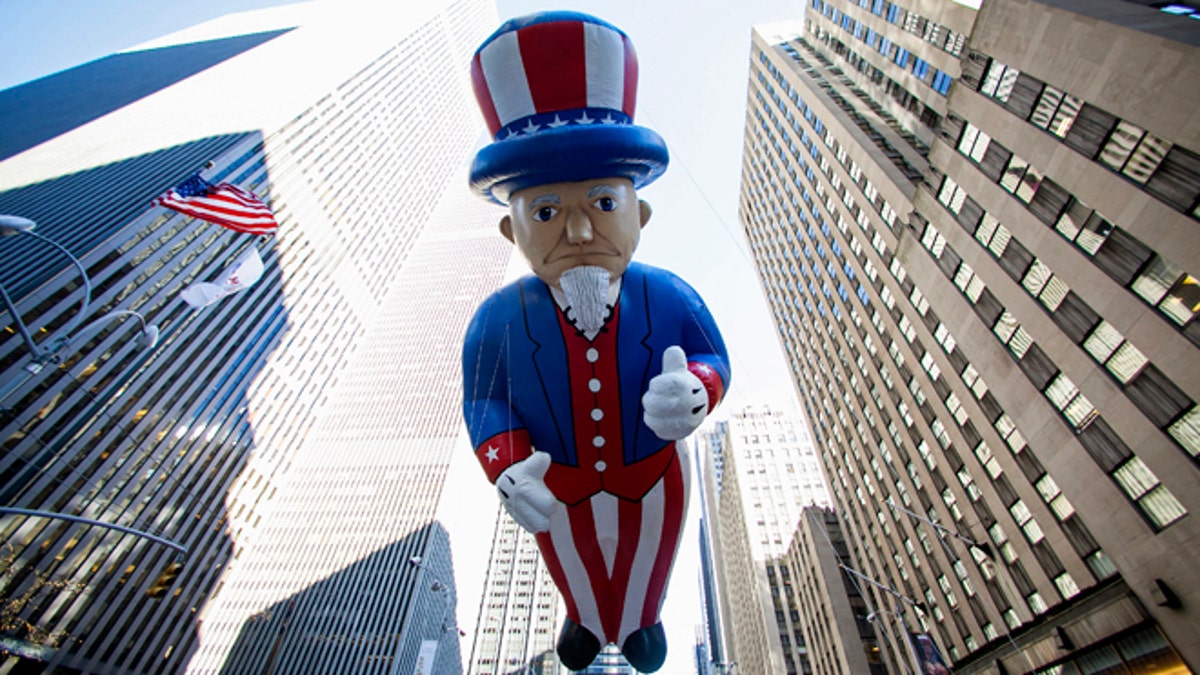
Nov. 28, 2013: An Uncle Sam balloon floats down Sixth Avenue during the 87th Macy's Thanksgiving Day Parade. (Reuters)
Americans think the government has made the income gap worse -- and don’t think the answer is for Uncle Sam to play Robin Hood.
Some 60 percent of voters think that over the last five years the federal government’s policies have increased the income gap between the rich and everyone else. That includes -- to varying degrees -- majorities of Democrats (52 percent), Republicans (64 percent), independents (67 percent) and those in the tea party movement (74 percent).
Just 25 percent of voters think policies under the Obama administration have decreased income inequality.
That’s according to a Fox News national poll released Wednesday.
Click here for the poll results.
President Barack Obama has said that reducing income inequality will be a top priority for the remainder of his presidency. Yet the poll finds a 52-percent majority believes Obama’s economic policies encourage “class warfare.”
And by a 55-39 percent margin, voters think it’s a bad idea for the government to “spread the wealth” from the people who make more money to the people who make less.
The idea of government policies to spread the wealth fails to receive majority support even among lower-income voters (those in households with annual income under $30,000): 46 percent think it’s a good idea, while 47 percent say it’s a bad idea.
Large numbers of Republicans (80 percent), tea party folks (80 percent) and independents (63 percent) see government policies to spread the wealth as a bad idea.
By a more than two-to-one margin most Democrats think it’s a good idea (66-30 percent).
In general, over half of voters think Uncle Sam is doing too much already: 54 percent say the government is providing too many services for too many people. That’s up slightly from 49 percent who felt that way in 2012.
Twenty-four percent feel the government is providing too few services for too few people, up from 20 percent in 2012.
About one in five believes services are being provided at the right level (19 percent).
The Fox News poll is based on landline and cell phone interviews with 1,006 randomly chosen registered voters nationwide and was conducted under the joint direction of Anderson Robbins Research (D) and Shaw & Company Research (R) from February 9-11, 2014. The full poll has a margin of sampling error of plus or minus three percentage points.




